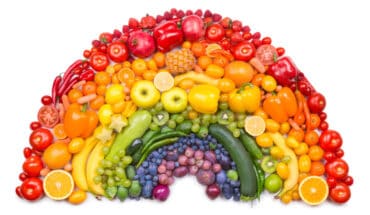Everyone is born with a unique metabolism and some people have a higher metabolic rate than others. This is because metabolism is based on a complex interaction of chemicals and hormones circulating in the body. Lean muscle mass also makes a difference to metabolism, which is why men tend to have higher metabolic rates than women.
As we get older, metabolism naturally slows down. Luckily, your metabolism is not fixed in stone. How much you eat, and your activity levels, and even your sleep patterns, also determine the rate.
Studies show that people who exercise regularly, boost their resting metabolic rate by up to 10 per cent. People who take medication for depression, however, may see a negative effect on their metabolism. A study published in the journal of Biological Psychiatry showed that patients treated with antidepressants showed a marked decrease in their resting metabolic rate, ranging between 17 per cent and 24 per cent. This means that a person on antidepressants would need to cut around 400 calories a day out of their daily diet – just to stay the same weight.
The good news is that metabolism can be slowed down or speeded up at any age. “There are plenty of things you can do to improve your metabolic rate,” says Professor Sir Steve Bloom, professor of metabolic medicine at Imperial College, London. “People who want to change their metabolism can choose to make a difference. Even a small change in lifestyle, fuelled by will power, can have a dramatic effect on metabolism, which can have a dramatic effect on overall health.”
THE THYROID GLAND
This butterfly-shaped gland in the neck secretes a hormone, which regulates the body’s metabolism. This hormone has an effect on nearly all tissues of the body where it increases cellular activity. The more hormone you secrete the higher your metabolism. “The normal range is quite broad, so some people will be more naturally active than others,” explains Professor Bloom. Hyperthyroidism is a condition when the thyroid gland is too active and can lead to high blood pressure and heart disease. Someone with hypothyroidism, when the gland is underactive, will be prone to drowsiness, depression and weight gain. Treatments are available for both conditions.
NUTRITION: TOP 10 TIPS
Always eat breakfast. Good choices are oatmeal, eggs and fruit with rye toast. Stay away from refined cereal products.
Eat regularly three times a day and balance your meals. Each meal should be 50 per cent vegetables, fruit or salad, 25 per cent protein and 25 per cent low GI carbs. The meal should be able to fit in your cupped hands.
Protein keeps your metabolism working hard because it takes more calories for your body to digest than carbohydrates and fats. Drink plenty of water, around eight to ten glasses a day. Without water, your body slows to conserve energy.
Soya protein seems to have a positive effect on the body’s metabolism of fat because it increases levels of fat-burning hormones from the thyroid gland.
If you feel a craving coming on between meals, wait 20 minutes. The body can only sustain a craving for 13 minutes. If you are still hungry after that, go ahead and have a snack.
Snack on satisfying foods that release their energy slowly. A handful of peanuts has been shown to reduce hunger cravings and can be a tool for weight loss.
Avoid sweet fizzy drinks, which are full of empty calories without nutritional benefit. Try low-calorie alternatives or herbal teas.
SOME MATHS.
If you just want to maintain your weight, your daily calorie intake should be your weight in pounds times 10, as long as you are within 20 pounds of your ideal weight. (If you are 30-50 pounds overweight multiply this by nine.) You have to add more calories if you work out. Multiply your weight by 1.3 if you are a light exerciser, and by 1.4 if you work out quite hard at least four times a week.
Grazers who prefer to eat small balanced meals every three hours throughout the day, can use the following formula to work out the calorie count of each meal. Take your body weight and multiply by 10, then divide by six. You are left with the calories that each small meal should contain.
- Gut microbiome could delay onset of type 1 diabetes - 3rd April 2025
- The da Vinci 5 Robot Is Set To Transform Bariatric Care: - 31st March 2025
- Beyond money: the hidden drivers fuelling child food insecurity - 31st March 2025






